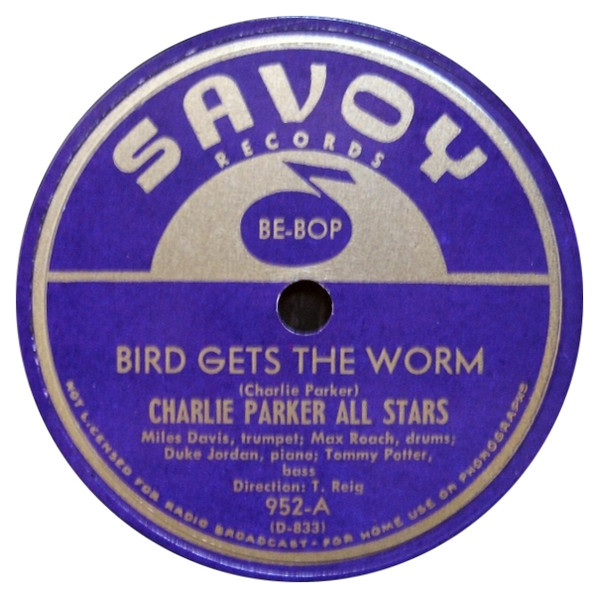Bird Gets The Worm / Cheryl
‘Bird.’ A name commonly used in reference to the legendary jazz saxophonist Charlie Parker. Despite many variations in the story of why exactly people called him this, when you listen to the free-flowing nature of his revolutionary saxophone playing the nickname seems more than appropriate. Born in Kansas, U.S.A, Parker began a career in music at the age of 15 and as a teenager he claimed to have spent 3-4 years practicing saxophone relentlessly, sometimes up to an astonishing 15 hours a day! Having later become one of the founding father’s of the Bebop style of Jazz along with artists such as Dizzy Gillespie and Thelonious Monk, the career that would ensue would make Parker one of the most, if not the most, influential saxophonist of the 20th Century. This success did not come without great tragedy, however. ‘Bird’ had chronic mental instability, the loss of a child, numerous suicide attempts and a prolonged battle with heroin and alcohol addiction for many years. This substance abuse was what ultimately lead to his death in 1955 at the young age of 35 years old.
‘Bird Gets The Worm’ is a track that was released in 1947 on the Bird Gets The Worm / Cheryl E.P. It is a phenomenal piece of Jazz which is played at an astonishing 340 BPM. Arguably, this is one of Parker’s finest compositions and it is the perfect track to introduce anyone to his work; the precision and speed at which he is playing is really quite hard to fathom. Indeed, what makes this record even more significant historically is that Jazz giants Miles Davis (trumpet) and Max Roach (drums) are playing on it.
While personal tragedy seems to have plagued a vast number of musicians in the 20th Century at a very young age, there can be no doubt that the legacy of Charlie ‘Bird’ Parker’s music will be one that remains highly influential and forever well-known in Jazz music history for all the right reasons.
